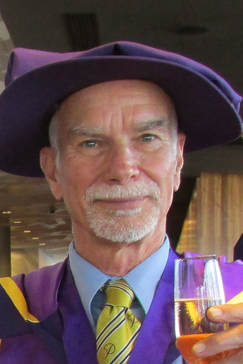I am currently Vice Chair and Board Member of the International Lymphoedema Framework, a board member of the Australian College of Phebology, the International Advisory group in lymphoedema ( for the Union Internationale Phlebologie and the International Compression Club. I am an external advisory board member of the American Lymphoedema Framework.
I am Chief and Clinical Sciences Editor for the Journal of Lymphoedema (UK), Australasian Editor for Lymphatic Research and Biology (USA), and an editorial board member of Lymphology (USA). I am a Member of the Editorial committee and chapter contributor to “Manual of Venous and Lymphatic Diseases“ 2018, an editor and chapter writer of “Lymphoedema Complete Medical and Surgical Management”.
I am an Adjunct Professor in the School of Medicine, Department of Surgery at Flinders University and Director of the Lymphoedema Clinical Research Unit. I currently supervise PhD/MD students in areas from primary lymphoedemas to investigation of tools to improve the classification/staging of lymphoedemas, to negative pressure as a treatment modality for lymphoedema to evaluation of the impact of water based activity in management of secondary lymphoedema.
I am patron of the National Lipoedema Support group and patron of the South Australian Lymphoedema Support group.
I am involved in the management/organising of the American Lymphoedema Framework/ILF Congress (July 2019) and the Dutch Lymphoedema Framework/ILF Congress Rotterdam (June 2018)
Recent publications I have been involved in cover a range of topics in the area of lymphoedema, including the choice of names (Chronic oedema or lymphoedema) to strategies to measure lymphoedema objectively and dealing with the correct selection of patients and medications to ensure optimal outcomes.
I am strongly committed to improving the outcomes for lymphoedema patients and a strong part of this is ensuring that treatment strategies are well targeted and sequenced but the main issue remains (and that is one I am extremely passionate about) and that relates to strategies to improve outcomes by ensuring therapists deliver what is optimal for the patients. Since the main stages of treatment of lymphoedema revolve around compression/bandaging skin and would care and activity and exercise I am committed to providing more objective information for what is right and what is best.

